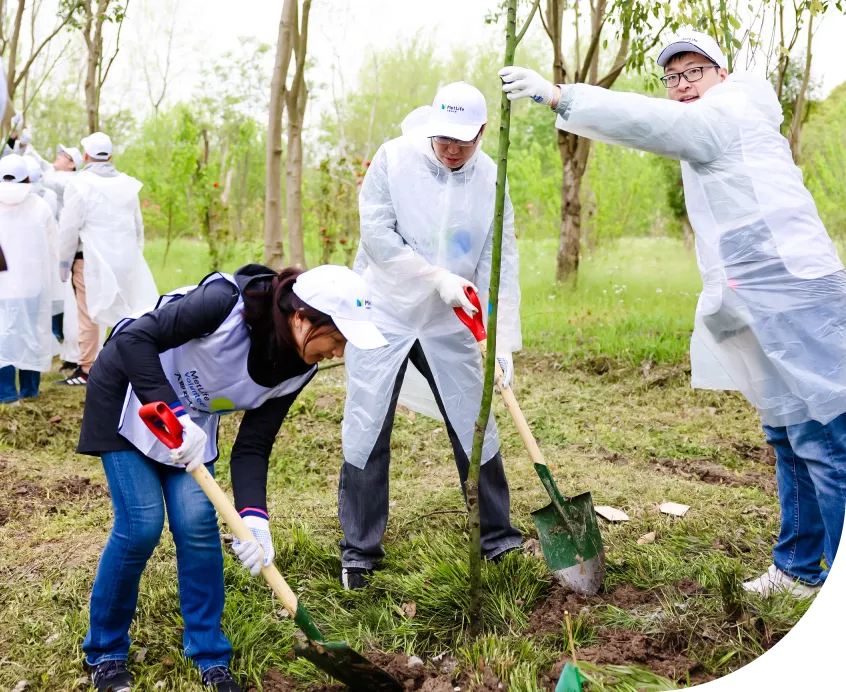For the Environment
Protecting Nature and Biodiversity
Health and well-being often depend on the health of the natural environment and the ecosystems in which we live. MetLife’s commitment to environmental stewardship and responsible resource management includes initiatives and programs that protect and enhance nature, plants and animals, including biodiversity and healthy ecosystems. This helps the communities where we live and work to thrive.
As a member of 1t.org, a global leadership platform to mobilize, connect and empower the global reforestation community to conserve, restore and grow 1 trillion trees by 2030, MetLife has pledged to plant 5 million trees around the world, prioritizing areas vulnerable to natural disasters.
MetLife and MetLife Foundation are making progress on this pledge through financial support to large-scale reforestation programs in national and state forests, distributing trees to homeowners in communities impacted by disasters and sponsoring employee volunteer planting projects around the world. We also use tree-planting projects to educate and engage our colleagues, customers and the community on the importance of trees to combat climate change and support healthy ecosystems.
MetLife plants a tree for each new hire across the globe and, in the U.S. and select markets in Asia, we honor full-time employees by planting a tree to commemorate their service anniversaries.
2.4M
Significant tree-planting projects MetLife and MetLife Foundation undertook throughout 2024 included:
- 500 seedlings planted of native Atlantic Forest trees that are threatened with extinction in the Nazaré Paulista region of Brazil;
- 16,660 trees planted by MetLife China through the Connecting with Nature program, an initiative that integrates education, tree planting and clean-up across the country and engaged colleagues, agents, customers and community members in collaboration with nonprofit Shanghai Grass & Roots;
- 220,000 mangroves planted in Madagascar with Earthly, supported by several of our Europe, Middle East and Africa markets; and
- 10,000 trees planted in the Van Swamp Game Land in North Carolina with Arbor Day Foundation.
To support the health of our communities and a critical element of local food supplies, MetLife supports beehive programs at several of our office locations. At our Cary, North Carolina and Tampa, Florida campuses, we partner with Bee Downtown to maintain honey beehives and provide year-round employee engagement opportunities, such as beeswax candle making, honey tastings and webinars and seminars. MetLife also sponsors beehives maintained by The Best Bees Company at MetLife Stadium in East Rutherford, New Jersey.
MetLife and MIM also originate investments that support biodiversity and healthy ecosystems.

